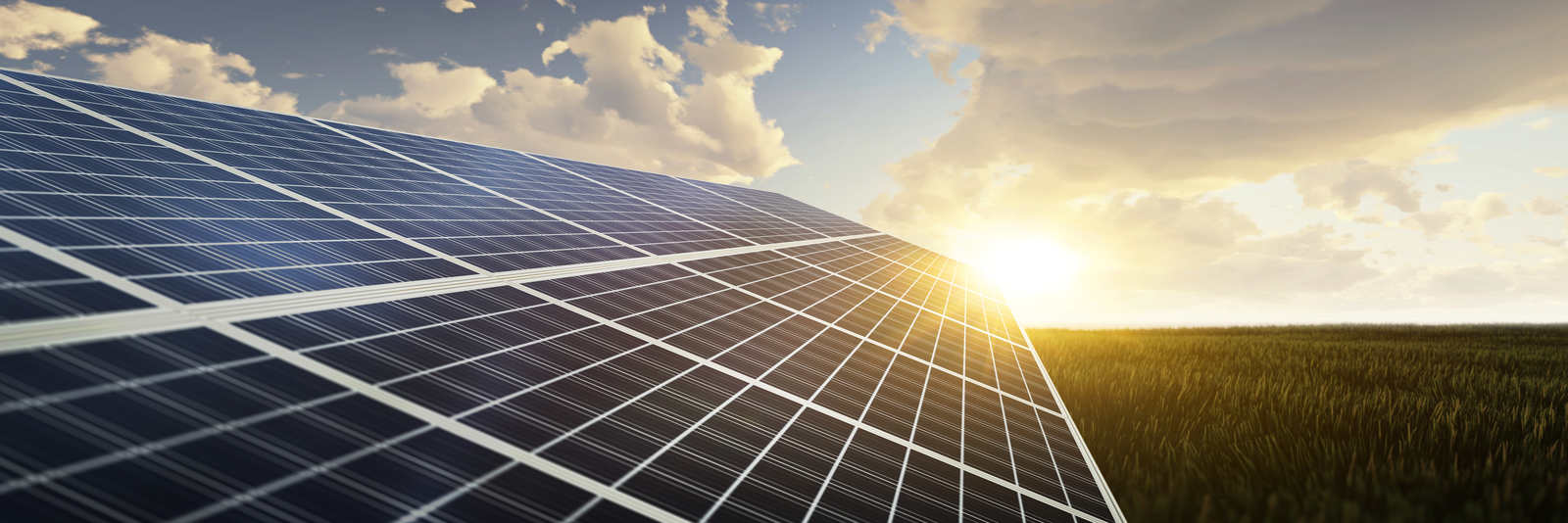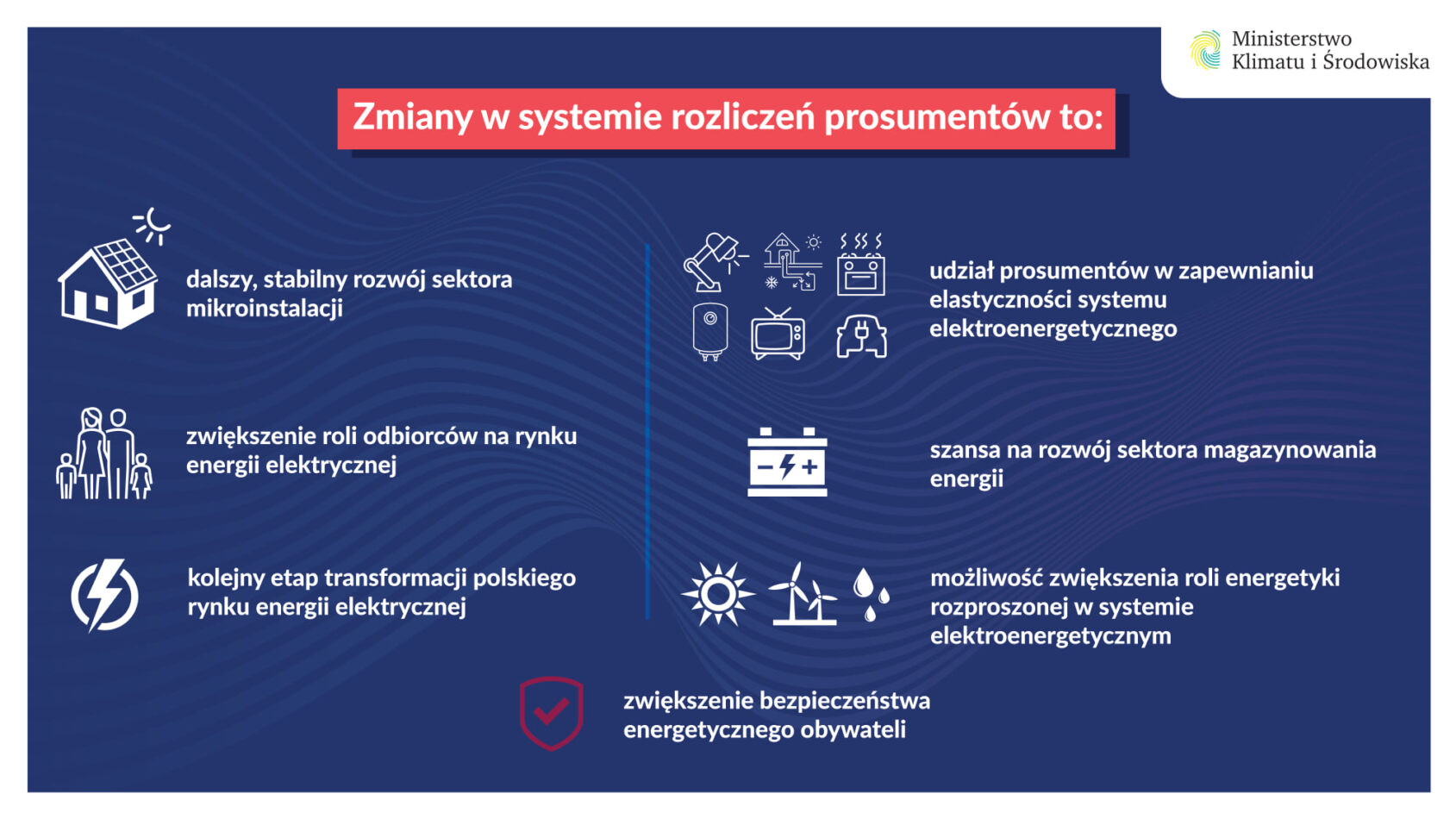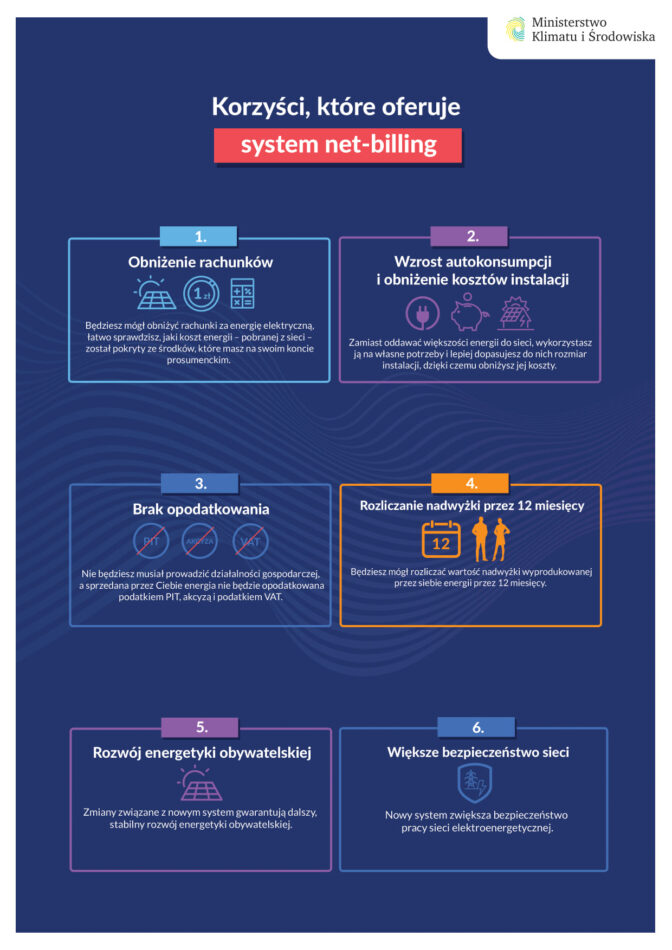

From 1 April 2022, new photovoltaic billing rules apply. Instead of the old system of discounts (net-metering), new users of photovoltaic systems are billed under a system of value-based billing of surplus energy (net-billing). What does this mean for prosumers? How will it affect the profitability of photovoltaics in 2022? Is it worth investing in a photovoltaic system after changes in regulations? How will existing users be billed? Is photovoltaics in 2022 cost-effective? We explain the most important issues.
The popularity of photovoltaic systems in 2022 is not decreasing. At the end of 2021, 700,000 users in Poland had their own solar micro-generation plant, and the total installed capacity exceeded 6404 MW. For comparison, in 2015 the total capacity of photovoltaic systems in Poland was only 108 MW. Such a dynamic growth of the RES sector radically improves the energy security of Polish households, but poses new challenges for the energy industry. It is, among others, the great success of PV micro-systems that has accelerated changes in regulations. What does the profitability of photovoltaics look like in 2022?
The changes to photovoltaic billing that have been announced for many months have now come into force. From Friday 1 April 2022, net-billing, a system of buying and reselling electricity at market prices, will apply to new investors. The previous billing method, net-metering, assumed that surplus energy produced, which is not used in the household on an ongoing basis or stored, is settled on a non-cash basis. In the discount system, the electricity produced from RES is fed into the grid, which acts as a virtual energy storage. The prosumer can withdraw this reserve within 12 months. For PV installations of less than 10 kWp, it is possible to use 80% of the surrendered electricity at a later date. For installations larger than 10 kWp, this is 70% of the energy. The rest is the commission of the electricity retailer, who is also the entity responsible for balancing the electricity.

In the new net-billing system, billing will look different. New investors will resell production surplus electricity at market prices, i.e. in a value-based settlement system. Until mid-2024, the previous month’s stock exchange prices will be the basis for settlement. After that, hourly prices in line with the dynamic tariff will come into force. This means that the prices for energy resale and purchase will vary throughout the day, depending on the current production and demand. The user will therefore be paid for each kWh fed into the grid on an ongoing basis, with no virtual storage of energy. When there is a shortage, the user will be able to buy electricity in the normal way, paying per kWh according to the retailer’s tariff. However, the cost of the energy drawn from the grid does not have to be added to the bill and can be settled from the funds stored in the prosumer’s individual deposit.The new value-based billing rules apply to users of photovoltaic systems who have submitted an application to the distribution network operator (DSO) after 31 March 2022. If you have done so before 1 April 2022, you can continue to benefit from the discount system. This is because existing prosumers can settle under the old rules for 15 years from the first date the energy was fed into the grid. Given that the biggest photovoltaic boom took place in 2020 and 2021, a sizable number of households can benefit from net-metering for many more years. Of course, a voluntary change to net-billing is possible.
There are many reasons why it was necessary to change the renewable energy legislation, but the most important is the need to align the laws with European Union directives. The adaptation of the National Electricity System to EU law, specifically to the provisions of Directive (EU) 2019/944 of the European Parliament and of the Council of 5 June 2019 on common rules for the internal market in electricity and amending Directive 2021/27/EU, was mandatory to allow prosumers to participate directly in the energy market. According to the implemented EU legislation, the cashless discount system did not allow investors to consciously manage their electricity production in the energy market. All EU Member States are obliged to change their legislation.
An equally important reason, which forced the changes in billing, is the dynamic development of photovoltaics in Poland. The large number of micro-systems means that peak energy production on sunny days is locally higher than the demand for electricity. Electricity storage systems in Poland have far too little capacity to store energy for later use. As a result of such high electricity production, the transmission network is sometimes overloaded, and its condition leaves a lot of room for improvement in many places. Despite the expansion and modernisation of the network by distribution operators, dangerous surges and overvoltages can occur in some places. This situation has been exacerbated by the fact that the system of discounts has even encouraged the scaling of installations. It encouraged the production of a large surplus of energy in the summer for use in the winter, e.g. for heating purposes. While this was convenient for prosumers, it posed a huge problem for power plants and distributors. The new billing system, net-billing, encourages self-consumption and energy production at times of peak demand. This is because it is then that the prices for resale of electricity will be highest. The new rules will make the Polish electricity market more flexible and prevent such a large disproportion between summer electricity production and winter demand. It will also improve the security of the national electricity system, which is already overloaded. This results in inverters being disconnected from the grid at peak production times in areas with the highest density of PV installations. Net-billing is supported by many RES organisations, including the International Renewable Energy Agency (IRENA). So let’s see if photovoltaics in 2022 pays off?

Is it still cost-effective to install photovoltaics after the regulatory changes? This question is being asked by many potential investors who have not had time to take advantage of the rebate scheme. Although at first glance the new rules seem to be less favourable, in reality it is possible to squeeze quite a few savings out of them. First of all, it should be noted how unstable and uncertain the energy market is in Europe at present. Russia’s attack on Ukraine and plans to move away from buying Russian raw materials are causing coal, oil and gas prices to skyrocket. The galloping prices on the Polish Power Exchange (POLPX) also affect the price of electricity. Polish power stations are still powered primarily by coal (70% of energy production). Future prices for raw materials depend on future geopolitical events, which does not inspire optimism.
With your own photovoltaic system in the net-billing model, you become independent of market energy prices and replace them with a fixed, stable monthly instalment for the installation of photovoltaic panels. In addition, self-generation encourages you to replace your classic coal-fired boiler with a heat pump or other type of electric heating. This is another step towards independence from the fluctuations of the global energy market. Another way to save money could be to replace a combustion engine car with an electric vehicle – car, scooter or even bicycle. There are no indications that fuel prices are going to fall to the level of a year ago, while own energy production encourages to “fill up” without costs.
Net-billing is also attractive for investors who want to consciously manage their electricity production. Does photovoltaics in 2022 pay off? This system encourages self-consumption, i.e., among other things, charging an electric car, heating with a heat pump, using air conditioning or replacing gas appliances with electric ones. It will also be profitable to install home energy storage in which energy will be stored during peak times. This can then be used at night or during inclement weather. At the same time, the hybrid photovoltaic system will protect the house in case of a blackout and prevent power cuts. It is worth remembering that the most popular on-grid installation today does not supply electricity to the house in the event of a grid failure anyway, even during sunny weather. During power cuts, the inverter automatically switches off.
The amendment to the RES regulations will affect the entire renewable energy sector in Poland. Thanks to prosumers becoming active participants of the energy market, they can more consciously decide to whom and for how much they resell electricity. This opens the door to new market players, such as energy aggregators. They will be responsible for purchasing, storing and reselling energy at the most favourable prices. The freedom to sign contracts will make it possible to maximise profits, depending on the current situation in the electricity market. Real-time energy trading will increase competitiveness and therefore financial benefits for prosumers and end consumers. In this way, increasing the share of RES in the energy mix will be more stable and secure for the grid.
The cost-effectiveness of photovoltaics in 2022 is still very high and changes in regulations will not change this. In fact, the benefits are much greater, as the prices of raw materials on the global market have unexpectedly increased. The current situation also shows how unstable the dependence of the most important energy carriers on the policies of other countries is, and basing future expenditure on this can be risky. Your own photovoltaic plant will therefore not only save you money, but above all provide you with security against further price increases. These are benefits that are not only felt in the wealth of your wallet, but also in your peace of mind.
Do you have any more questions about the profitability of photovoltaics in 2022? Do you want to know how the new Net-Billing system works? Are you interested in the topic of how to choose energy storage? Click and check out our photovoltaics guide. Click and check out our photovoltaics guide
Our offer
Useful
Shop